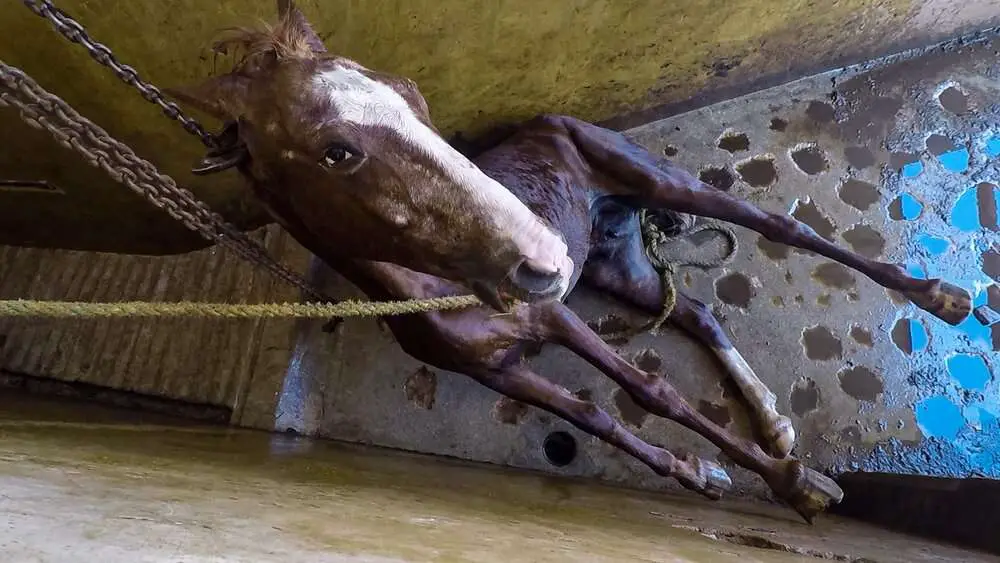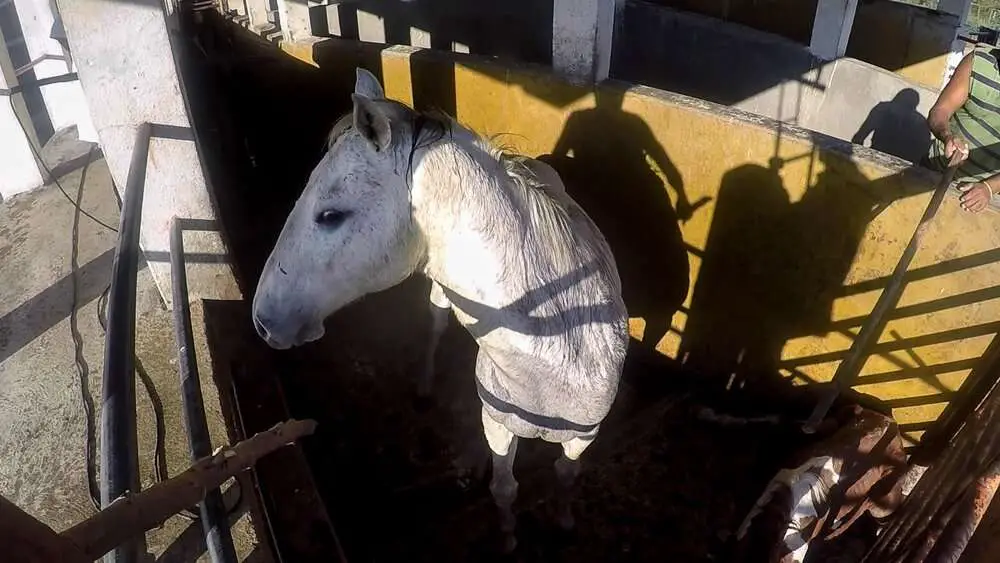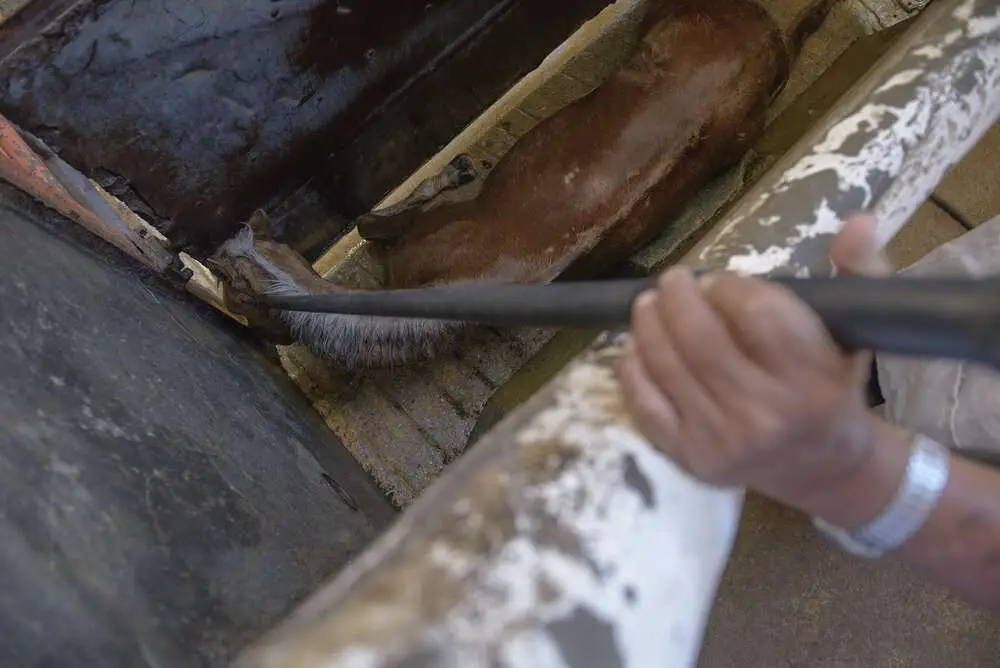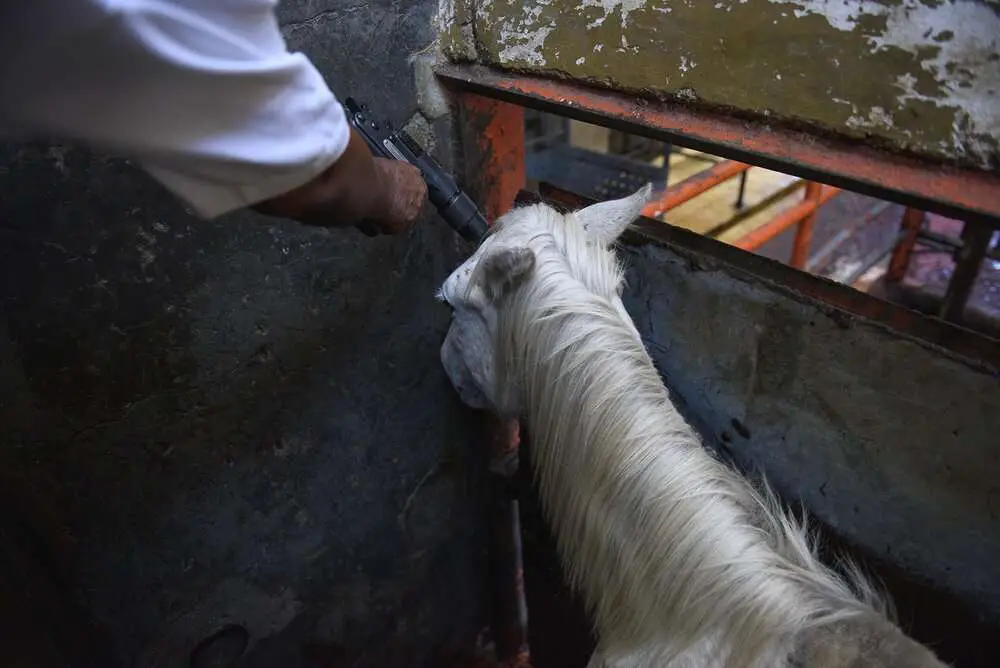This is the shocking video evidence of the cruel slaughter of horses said to be sold off as beef from an abattoir in Mexico.

Distressing undercover footage shows how the horses are choked, electrocuted, and beaten with sticks at the slaughterhouse in Arriaga, Chiapas State.
The business where the abuse is said to be taking place is not authorised to keep horses.
Shocking scenes show how the animals are beaten to drive them towards the area where they are killed.
So weak they can barely stand up, they are tortured with agonising shocks before their skulls are pierced with an electric stunner.
Animal rights activists believe their meat may be sold deceptively as beef.
In a statement obtained by Newsflash, the non-profit organisation Igualdad Animal said: “The foundation Igualdad Animal has published evidence of the clandestine slaughter of horses for human consumption that occurs daily in Mexico.
“The images were obtained in an undercover investigation carried out in a slaughterhouse located in Arriaga, Chiapas, which legally only slaughters cows and does not inform the authorities about the slaughter of horses.

“The videos and images obtained expose non-compliance with the law that regulates methods of animal sacrifice in Mexico (NOM-033-SAG/ZOO-2014) mandatory throughout the territory.
“This evidence shows how the operators mistreat the horses; to immobilise them, they suffocate them with a chain while fully conscious, in addition to giving them electric shocks on different parts of their body, such as their ears, to stun them.
“Mexico is the second largest producer of horse meat worldwide, behind China, and one of the largest exporters in the world, the fifth in the Americas. Its sales of horse meat in the national market for human consumption are also very high.
“Due to the lack of transparency in its labelling, horse meat slaughtered clandestinely is often sold as beef, among other reasons due to its high content of clenbuterol, a veterinary medicine that is harmful to humans and the use of which is not permitted in animals intended for consumption.

“Because of this, horse meat is a risk to people’s health and results in animal cruelty.
“According to the Food and Agriculture Organisation of the United Nations (FAO), in Mexico some 579,983 horses are slaughtered every year, but these figures do not include those that are killed clandestinely.
“Considered in many cultures to be pets, these sensitive and intelligent animals are treated like commodities in world trade.
“They suffer not only in slaughterhouses during slaughter, but also during the long-distance transportation they endure when being shipped from the countries where they are raised to the countries where they are slaughtered.
“Many of the clandestinely slaughtered horses arrive in Mexico after long journeys from the United States, where their slaughter has been prohibited and there is an initiative to prevent their trade for human consumption.

“In Mexico there are no farms that raise horses for human consumption, so most of those that are sacrificed come from shows, traction work, and horse riding, where they are supplied with substances not suitable for consumption.
“As they do not meet sanitary requirements, many of these animals are slaughtered in clandestine slaughterhouses.”



